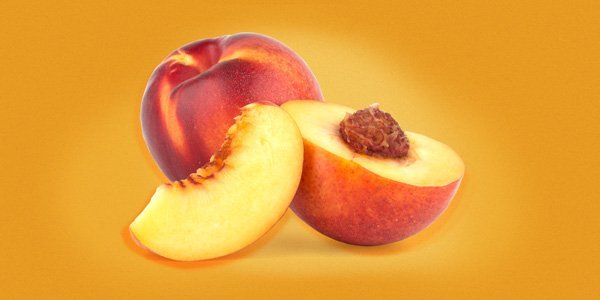Peach

Praskova, peach tree – a plant of the Rosaceae family, which is very close to the almond tree, from which it differs only in its fruits.
The peach tree is heat-loving and slightly tall, forms a large crown, has lance-shaped leaves with jagged edges and almost no stalk, pink flowers appear before the leaves appear.
Its fruits ripen in July and August. The homeland of this tree is northern China, and for the first time in Europe it was planted in Italy.
The plant is cultivated in a moderately warm or subtropical climate, and in Bulgaria the lowlands of southern Bulgaria are particularly suitable for this purpose.
Peach – useful properties
According to Eastern medicine, peach is a symbol of health and longevity. In our country, this fruit is considered a dietary food and is useful for both women and small children and even the youngest.
Ripe peach fruits contain – sugar /up to 15%/, organic acids – quinic, malic, tartaric, citric, etc., essential oil, minerals, ascorbic acid /vitamin C/, vitamins of group B, provitamin And pectin.
Peach seeds contain up to 60% fatty oil with a characteristic almond smell, essential oil /bitter almond/, glycoside amygdalin, which is actually the source of the almond aroma.
Peach fruits have a diuretic and mild laxative effect.
The organic acids and essential oil contained in the fruit pulp stimulate bile secretion, help improve digestion and increase appetite.
Thanks to the high content in peaches of mineral substances /iron, copper and others/, they are used to treat anemia and gastritis.
Also, the inner part of the fruit contains potassium salts, which are evident in heart rhythm disorders and other heart diseases.
For heart rhythm disorders, anemia, stomach diseases, with reduced acidity, with constipation, it is recommended to take ¼ cup of peach juice 15-20 minutes before meals.
Peach fruits are rich in vitamins, therefore it is desirable to consume them as a preventive measure against colds, infectious diseases, avitaminosis.
Vitamins have an adaptogenic effect, that is, they help the body adapt to the adverse effects of the environment.
Fresh peaches contain a large amount of sugars, and dry peaches even up to 70-80%, therefore they are contraindicated in diabetes mellitus and obesity.
In addition to the fruits themselves, a decoction of peach leaves and flowers is also used in folk medicine for rheumatism and gastrointestinal diseases. Fresh peach blossoms are a good diuretic, and its seeds have anthelmintic properties.
Contraindications
The use of peaches is prohibited in case of obesity and diabetes, due to the high content of carbohydrates and sugars in them.
Furthermore, an allergy to peaches is possible, especially if there is pollen left on them. It is important to know that the stone of these fruits is toxic.
Excessive consumption of peaches can cause dysbacteriosis and intestinal disorders. It is also not desirable to abuse these fruits with increased acidity, so as not to cause complications.
Peaches have an energizing effect, therefore they are undesirable for people with an easily excitable immune system.
It has a bad effect on the function of the digestive system if the fruit is consumed in the second half of the day. And it is not desirable to eat more than 600 grams per day.



